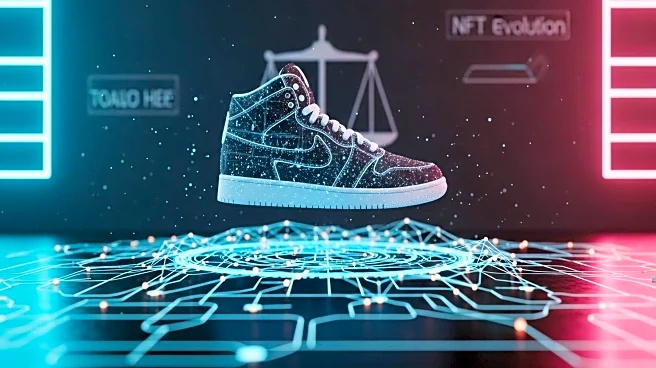What's Happening?
The recent settlement of the Nike v. StockX case has significant implications for NFT-based platforms in the sneaker resale market. The case involved allegations of trademark infringement and counterfeit sales related to StockX's 'Vault NFTs,' which served as digital claim tickets for physical Nike sneakers. The legal proceedings highlighted the tension between blockchain innovation and traditional intellectual property frameworks. A pivotal ruling found StockX liable for selling counterfeit sneakers, while broader trademark infringement claims were sent to a jury trial. This case underscores the growing application of traditional IP doctrines to NFTs, treating them as independent assets.
Why It's Important?
The outcome of the Nike v. StockX case is crucial for the sneaker resale market and NFT platforms. It sets a precedent for how NFTs tied to physical goods are treated under trademark law, potentially limiting the applicability of first sale protections. This could lead to increased litigation risks for platforms that tokenize branded goods without explicit authorization. The case also highlights the need for robust authentication processes to avoid counterfeit liabilities, influencing how platforms like eBay and GOAT operate. Additionally, regulatory frameworks are evolving to address the intersection of NFTs and IP law, impacting compliance and business strategies.
What's Next?
Following the settlement, NFT-based platforms are likely to recalibrate their business models to mitigate legal risks. This may involve diversifying revenue streams and strengthening authentication processes. Regulatory bodies are reviewing how NFTs interact with IP law, suggesting potential updates to trademark classifications and compliance standards. Investors and platforms must navigate these changes, balancing innovation with legal and regulatory considerations. The case also opens opportunities for brands to explore direct resale platforms, leveraging data and brand control to redefine market dynamics.









